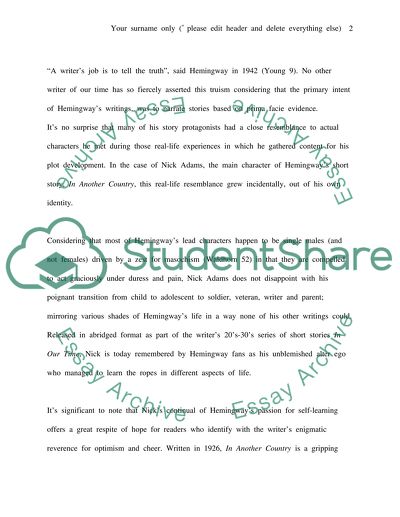Cite this document
(“Ernest Hemingways In Another Country Book Report/Review”, n.d.)
Retrieved from https://studentshare.org/literature/1506595-ernest-hemingways-in-another-country
Retrieved from https://studentshare.org/literature/1506595-ernest-hemingways-in-another-country
(Ernest Hemingways In Another Country Book Report/Review)
https://studentshare.org/literature/1506595-ernest-hemingways-in-another-country.
https://studentshare.org/literature/1506595-ernest-hemingways-in-another-country.
“Ernest Hemingways In Another Country Book Report/Review”, n.d. https://studentshare.org/literature/1506595-ernest-hemingways-in-another-country.


